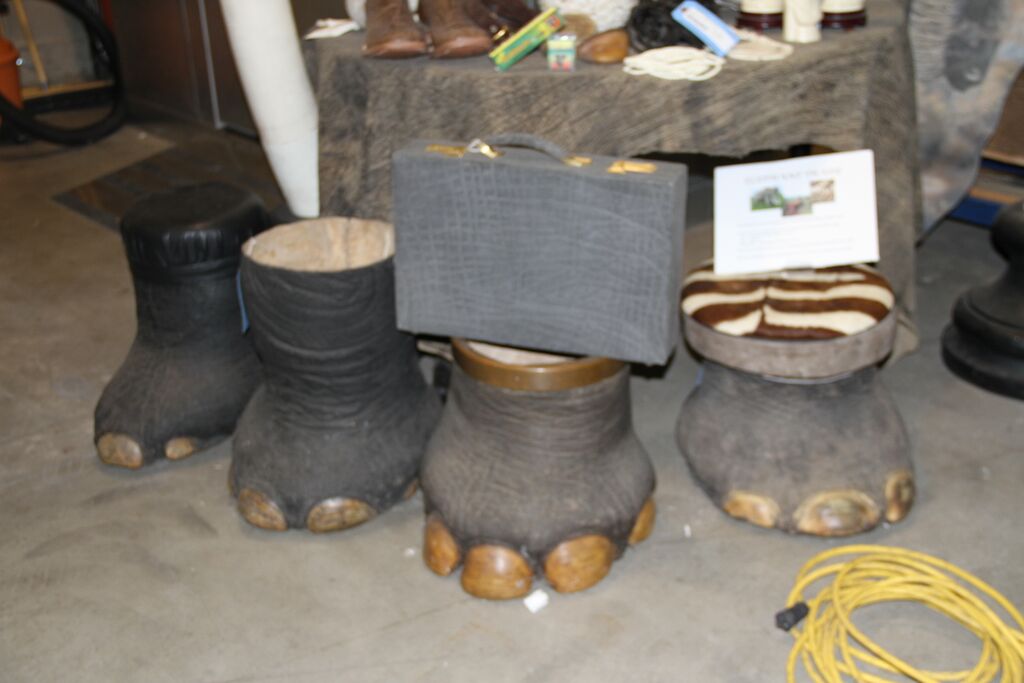In The News
Confiscated endangered species products give stark example of illegal marketplace
Tuesday, October 27, 2015

Photo by Daniel Wright
The Yes on I-1401 campaign partnered with Woodland Park Zoo to share examples of confiscated products made from endangered species parts at a press event held today at the zoo.
The event provided a closer look at the jarring reality of illegal wildlife trafficking and heightened the urgency of passing I-1401 this coming Election Day, Tuesday, November 3. The initiative, if passed, would create new state laws to crack down on local illegal wildlife trafficking by penalizing those who profit from the sale and distribution of products made from the parts of 10 animal species: cheetah, elephant, leopard, lion, marine turtle, pangolin, ray, rhino, tiger and shark.
Several confiscated artifacts made from parts of animal species, including some of the 10 animals covered by Initiative 1401, were on display at the event and included: a paperweight made from the paw of a cheetah, ivory trinkets, an elephant hide wallet, an elephant tusk, a rhino horn, a leopard skin muff, cowboy boots made from sea turtle skin, and whole sea turtles preserved for display. Ivory trinkets, for example, are carved from elephant tusks that poachers acquire by sawing them off of an elephant, sometimes while it is still alive, leaving the elephant to bleed to death – about 100 elephants are killed by poachers every day.
Since 2010, federal agents at the Port of Seattle have seized more than 50 products made from elephants, but none of those seizures resulted in jail time for the offenders. By voting yes on I-1401, voters would give state authorities the tools needed to help prosecute traffickers and help put an end to local illegal wildlife trafficking.
“With each passing day, some of our planet’s most rare and iconic animal species are being pushed closer to the brink of extinction,” said Fred Koontz, Vice President of Field Conservation at Woodland Park Zoo. “Poachers, acting on behalf of sophisticated international criminal networks, cruelly slaughter animals for one purpose — to fuel a highly lucrative and destructive global black market trade in endangered species products, all of which could be made from other materials. I work worldwide with many dedicated conservation scientists and have seen the devastating population loss that is caused by wildlife poaching and the illegal trade of these endangered species. It is, without a doubt, a global crisis of epic proportions. Some say there is nothing that can be done on our local level. That isn’t true. No one city, state or nation acting alone can save overexploited animals, but together we can make a difference. By passing 1401, we are one step closer to saving animals from extinction.”
Woodland Park Zoo is among the partners on the I-1401 campaign. The zoo has a global perspective on animal conservation. The zoo knows that the well-being of humankind is directly linked to the well-being of wildlife. Woodland Park Zoo uses its most powerful asset, its animals, to convey the importance of conservation to its audience by: 1) teaching ecological literacy; 2) empowering guests by illustrating how their actions directly impact wildlife conservation and ecological health; and 3) focusing field projects on preventing extinctions and improving sustainable management in living landscapes. Woodland Park Zoo’s field conservation program supports activities that directly contribute to the long-term survival of species in natural ecosystems and habitats both in Washington state and abroad. The zoo encourages people to be involved in protecting animals and their habitats; whether its donating money, time or simply a voice, every bit contributes to helping wildlife and wild places thrive. Residents of the state of Washington can make a local difference in a global challenge – prevent some of the world’s rarest animals from disappearing forever- by voting yes on Initiative 1401.
